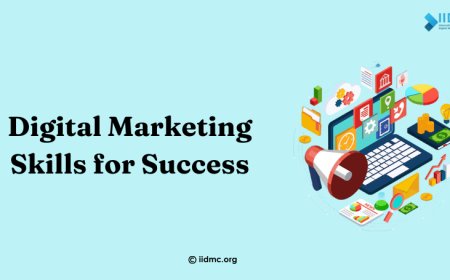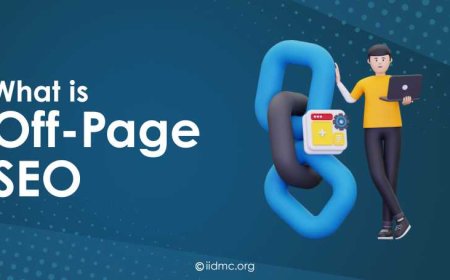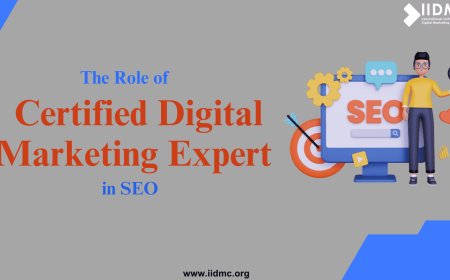Top Skills to Learn in Digital Marketing Certification
Learn digital marketing skills like SEO, social media, email marketing, analytics, and content creation to improve your career with a certification program.
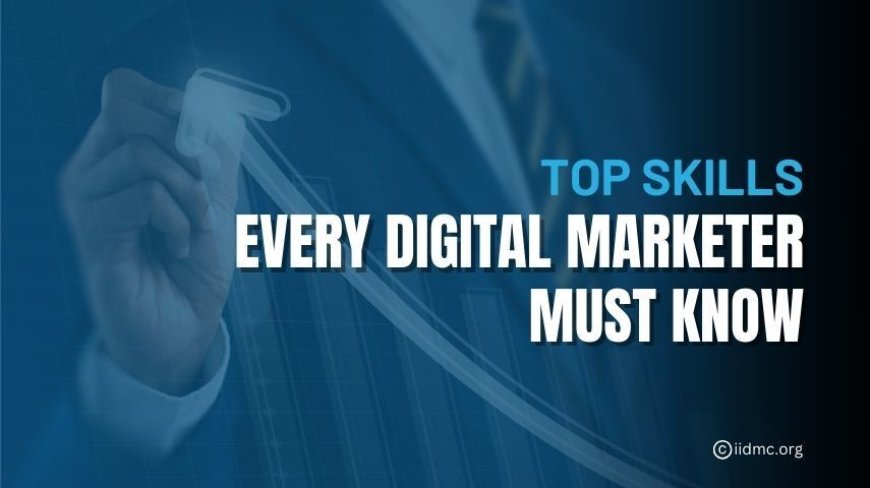
Have you ever wondered why some brands catch your attention instantly while scrolling online, while others go completely unnoticed? The secret lies in smart digital marketing. In today’s world, every business, from small shops to big companies, is moving online, and they all need experts who know how to reach the right audience. This is where a Digital Marketing Certification becomes so valuable. It not only builds your knowledge but also gives you hands-on skills to stand out in a highly competitive career space.
With a Digital Marketing Certification, you don’t just learn the basics; you learn skills that are in high demand everywhere. From ranking a website on Google to building a strong social media presence, writing engaging content, and making data-driven decisions, these skills can open endless opportunities. Whether you dream of getting a great job, growing your business, or working as a freelancer, learning the top skills in digital marketing will set you on the right path. Here, I will guide you through the most important skills you should focus on to make your certification truly worthwhile.
Why Digital Marketing Skills are Important
Traditional marketing methods like TV ads, radio, or billboards alone are not enough. People now research products, read reviews, and buy online. If businesses are not visible where their customers are, they lose opportunities.
Digital marketing skills are important because they help:
-
Connect with the right audience at the right time. Businesses can reach people who are actively searching for their products or services.
-
Save costs compared to expensive offline ads. Small businesses with limited resources can still compete with larger brands.
-
Measure results with real-time data. Marketing strategies can be adjusted instantly for better results.
-
Stay ahead of competitors who are also fighting for online attention.
For professionals, digital marketing skills open up opportunities in a field that is continuously growing. Companies need marketers who understand how to use digital platforms effectively, and individuals who have mastered these skills can establish themselves as highly valuable assets.
How Digital Marketing Helps Businesses
Businesses of all sizes are investing in digital marketing because of the measurable benefits it offers.
-
Cost-effective: Online ads allow companies to spend within their budgets while reaching more people than traditional advertising.
-
Targeted Reach: Marketers can focus on specific audiences based on factors such as interests, age, and geographic location, ensuring campaigns reach the right people.
-
Brand Building: By consistently creating valuable content and engaging with customers online, businesses can build stronger brand recognition.
-
Measurable Result: With tools like Google Analytics, companies can monitor how many people visit their websites, how long they stay, and what actions they take.
-
Boost Sales: Digital campaigns guide customers through the buying journey, from discovering a product to making a purchase.
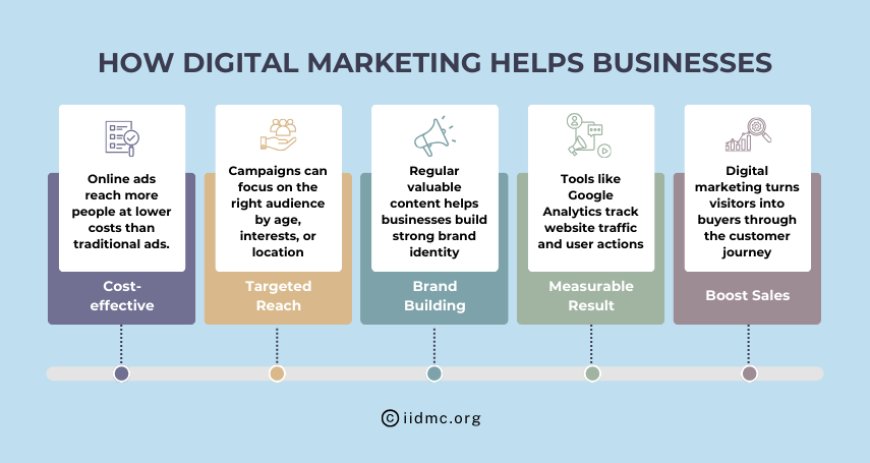
A well-executed digital marketing strategy helps both established companies and start-ups grow faster by giving them visibility and credibility in the marketplace.
Important Skills to Learn in Digital Marketing
Core Skills
-
Search Engine Optimization (SEO): Mastering SEO ensures websites appear higher on Google search results. It includes on-page SEO (content and keywords), off-page SEO (backlinks and authority), and technical SEO (site speed, mobile-friendliness, and structure).
-
Search Engine Marketing (SEM) & PPC: Paid campaigns help businesses gain instant visibility. A good SEM expert knows how to write effective ad copy, set budgets, and monitor conversions to maximize ROI.
-
Social Media Marketing (SMM): Platforms like Instagram, Facebook, Twitter, and LinkedIn offer massive opportunities for brand promotion. Learning SMM involves understanding algorithms, creating engaging content, and running ads.
-
Content Marketing & Copywriting: Quality content attracts and retains audiences. Copywriting ensures the right words trigger emotions and actions. Blogs, videos, infographics, and whitepapers all fall under content marketing.
-
Email Marketing: Building and segmenting email lists, creating personalized campaigns, and analyzing open and click-through rates are crucial for nurturing leads.
-
Web Analytics: Without data, marketing is guesswork. Analytics helps marketers track customer behavior, campaign success, and return on investment.
-
Mobile Marketing: As mobile users grow, optimizing websites for smartphones, creating mobile ads, and app marketing are becoming essential skills.
Advanced Skills
-
Marketing Automation: Automating repetitive tasks like follow-up emails, lead scoring, and chatbots saves time and ensures consistency.
-
Influencer Marketing: Collaborating with influencers allows brands to reach highly engaged niche audiences.
-
Video Marketing: As video content dominates, skills in video creation, editing, and optimization are highly valuable.
-
E-commerce Marketing: With more businesses selling online, marketers need to know how to optimize product listings, run shopping ads, and use remarketing.
-
Conversion Rate Optimization (CRO): Small tweaks, such as optimizing landing pages or simplifying checkout processes, can dramatically improve conversions.
-
User Experience (UX): Digital marketers who understand how users interact with websites can design smoother journeys that lead to higher engagement.
Soft Skills for Digital Marketers
Digital marketing is not only about technical skills. The human side of marketing plays an equally important role.
-
Creativity: To stand out among millions of ads and posts, marketers must bring fresh, original ideas.
-
Communication: Whether writing emails or creating campaigns, clear communication ensures the message resonates with the audience.
-
Adaptability: The digital landscape changes rapidly—what works today may not work tomorrow. Marketers must adjust strategies quickly.
-
Strategic Thinking: Instead of chasing short-term wins, successful marketers design campaigns that contribute to long-term growth.
-
Analytical Ability: Data without interpretation is meaningless. Marketers must turn raw numbers into actionable insights.
Career Opportunities after Digital Marketing Certification
The field of digital marketing offers numerous career paths, each with strong growth potential. Here are some of the most popular roles explained in simple words:
-
Digital Marketing Specialist: This person takes care of the overall online marketing strategy. They work across multiple platforms like SEO, social media, email, and ads to make sure all campaigns are connected and bring results.
-
SEO Specialist: Their main job is to make sure a website shows up on the first page of Google. They use keywords, backlinks, and technical fixes to increase visibility so more people visit the site naturally without paid ads.
-
PPC/SEM Manager: These professionals handle paid ads on Google or Bing. They decide which keywords to bid on, how much budget to use, and how to design ads so that businesses get the best return on their money.
-
Social Media Manager: They run a brand’s social media accounts, post creative content, reply to comments, and create campaigns to grow followers and increase engagement.
-
Content Strategist: Content is the backbone of digital marketing. A content strategist plans blogs, videos, and social posts that not only inform customers but also build trust and brand authority.
-
Email Marketing Specialist: Their role is to design and send email campaigns that keep customers engaged, promote new products, and bring people back to the website.
-
Data Analyst: A data analyst studies all the numbers from campaigns, like clicks, traffic, and conversions, to find out what is working and what should be improved.
-
E-commerce Manager: For businesses selling products online, the e-commerce manager ensures the website is running smoothly, product listings are optimized, and promotions bring in sales.
-
Consultant: Digital marketing consultants provide expert advice to businesses. They review a company’s current marketing efforts, identify gaps, and suggest the best strategies to grow online.
Future Trends in Digital Marketing
Digital marketing continues to evolve as new technologies emerge. Key trends include:
-
AI and Automation: Smart tools are being used for personalization, campaign optimization, and customer service.
-
Personalized Marketing: Customers expect brands to offer experiences and ads tailored to their preferences.
-
Voice Search Optimization: More users are searching through voice assistants, making this an area of opportunity.
-
AR/VR Experiences: Interactive ads and virtual experiences are becoming popular in retail and entertainment.
-
Privacy-first Marketing: With stricter data protection regulations, businesses must find ethical ways to use data.
Benefits of Getting Certified in Digital Marketing
Pursuing a digital marketing certification offers multiple advantages:
-
Recognition: Certifications demonstrate credibility and professional skills to employers and clients.
-
Structured Learning: Courses provide step-by-step training across essential areas of digital marketing.
-
Hands-on Training: Many certifications include practical projects, case studies, and simulations.
-
Networking: Opportunities to connect with peers, instructors, and industry experts.
-
Career Growth: Certified professionals often enjoy faster promotions and better salary prospects.
How to Choose the Right Digital Marketing Certification
Not all certifications are the same. Important factors to consider include:
-
Accreditation: Choose certifications from well-recognized organizations like IIDMC.
-
Curriculum: Ensure the program covers all major areas including SEO, PPC, social media, analytics, and new marketing technologies.
-
Practical Training: Look for opportunities that include real-world projects and industry tools.
-
Mentorship: Courses that provide expert guidance help learners gain deeper insights.
-
Value for Money: Compare the cost of the course with the opportunities it provides, such as job placement assistance or tool access.
Best Institute for Digital Marketing Certification
Choosing the right institute for digital marketing certification is one of the most important steps in building a successful career in this field. With so many options available, it can be confusing to decide which one is truly worth your time and investment. Among the many choices, IIDMC – International Institute of Digital Marketing Certifications stands out as one of the best institutes for digital marketing certification.
About IIDMC
IIDMC is a globally recognized institute that provides a high-quality digital marketing certificate. It is designed for students, working professionals, entrepreneurs, and even business owners who want to learn digital marketing in a structured and practical way.
What makes IIDMC special is its international standards of teaching, updated curriculum, and focus on real-world applications rather than just theory. IIDMC certifications are recognized by companies worldwide, making learners job-ready in the fast-growing digital industry.
Why Choose IIDMC for Digital Marketing Certification?
-
Global Recognition: IIDMC certifications are respected internationally. This means that whether you are applying for jobs locally or abroad, your certification carries weight and credibility.
-
Comprehensive Curriculum: The course content is designed to cover everything from basic to advanced topics such as SEO, SEM, Social Media Marketing, Content Marketing, Email Marketing, Web Analytics, and more. The syllabus is regularly updated to match the latest trends in digital marketing.
-
Practical Learning Approach: IIDMC focuses on real-world training. Students work on live projects, case studies, and practical assignments, which prepare them to handle actual campaigns once they enter the industry.
-
Flexible Learning Options: IIDMC offers both online and classroom training, which makes it easier for students across the world to access quality education. The online classes are interactive and provide the same level of attention as in-person sessions.
-
Industry Tools Training: Learners get hands-on training with popular digital marketing tools such as Google Ads, Google Analytics, SEMrush, Mailchimp, HubSpot, and more. This makes them confident in handling campaigns professionally.
Learning digital marketing skills through a certification is one of the smartest career moves. It equips you with essential knowledge like SEO, social media marketing, content creation, email marketing, and analytics, while also preparing you for future trends such as AI-driven marketing and personalization. These skills not only help businesses grow online but also open up diverse career opportunities for individuals. A digital marketing certification builds confidence, provides practical exposure, and gives you an edge in a competitive job market, making it a valuable investment for both professionals and entrepreneurs.



























